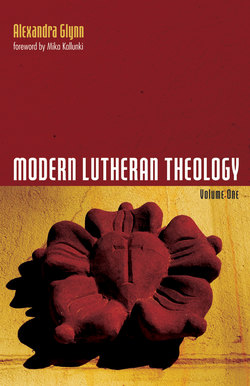Читать книгу Modern Lutheran Theology - Alexandra Glynn - Страница 7
На сайте Литреса книга снята с продажи.
Peter’s exhortation to us
ОглавлениеPeter says that as long as he is in this body, this tabernacle, he will use his time to stir up the others. That is, to incite them, to provoke them unto love and good works, as it says in Hebrews 10:24. Consider the verb “stir up.” You stir up a fire, for example, when it is getting low, and it flames up once again. You stir up a pot every so often, so that what you are cooking doesn’t congeal, or burn. It has to heat up, but it must not burn. After you stir the pot, it is fine for a while. Then you have to go back a little while later and stir it again. Then it is fine for a little while longer. In the same way, you stir up people who are lethargic so that they can pay attention when danger comes by.
I often think that we stir ourselves up every Sunday and every mid-week day that we go to services or go visiting or go to Bible Class. It helps us at the time, but we still have to go the next time and the next time, to keep ourselves from congealing.
To stir up is to provoke, to urge. Peter says he goes around stirring people up—that is his pastoral work. He exhorts, comforts, rebukes, reminds, consoles. These are his acts of love and good works. For when we come together to visit, or to look into God’s Word, or to hear it preached, we are never learning anything new. Paul writes: “But as touching brotherly love ye need not that I write unto you; for ye yourselves are taught of God to love one another” (1 Thess 4:9). Why does he say “you do not need that I write to you” and yet he writes it to us? Because we forget. And so we have to exhort each other and tell each other the things that we already know but are always in danger of letting go of, of forgetting, of slipping from (Heb 2:1). This is what Peter says he does. He says: “I will not be negligent to put you always in remembrance of these things, though ye know them, and be established in the present truth” (2 Pet 1:12). For we are instructed and know, but we must re-know, we must be reminded, we must be made sure again. The gospel writer begins his gospel, explaining why he wrote it and why we must read the gospel. He says that it is so that “thou mightest know the certainty of those things, wherein thou hast been instructed” (Luke 1:4). We are certain, but we need to always be made more certain.
Because we have the Holy Spirit abiding in our hearts by faith, we already know: “But ye have an unction from the Holy One, and ye know all things” (1 John 2:20). But we get distracted by other things, as the parable says (Luke 8:14), and we wax cold, and our flesh gets in the way. And thus we do not do the Word, and we even forget what we have heard and know. But Jesus reminds us: “If ye know these things, blessed are ye if ye do them” (John 13:17). And the Holy Spirit in us, even as we tire and forget, still knows what is right, and reminds us in our heart: “Now we have received, not the spirit of the world, but the spirit which is of God; that we might know the things that are freely given to us of God” (1 Cor 2:12).
So may God help us, and stir us up and provoke us continuously through our brothers and sisters, as it is written: “And the Lord make you to increase and abound in love one toward another, and toward all men, even as we do toward you” (1 Thess 3:12). For it is also written: “Withhold not good from them to whom it is due, when it is in the power of thine hand to do it. Say not unto thy neighbor, ‘Go, and come again, and to morrow I will give,’ when thou hast it by thee” (Prov 3:27–28).
